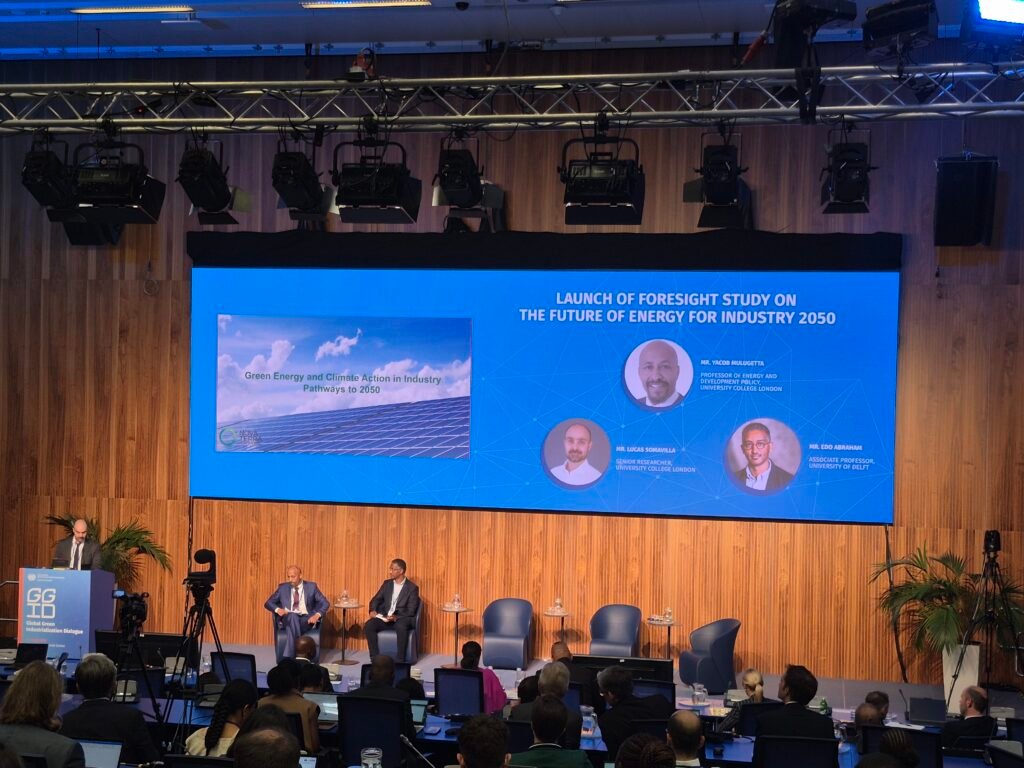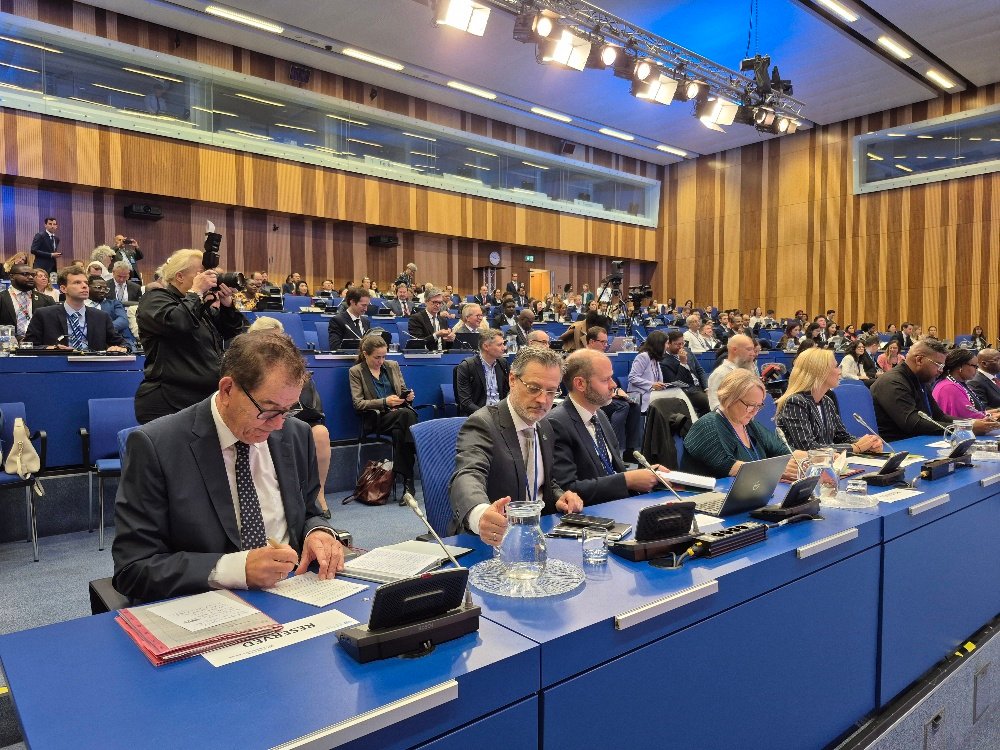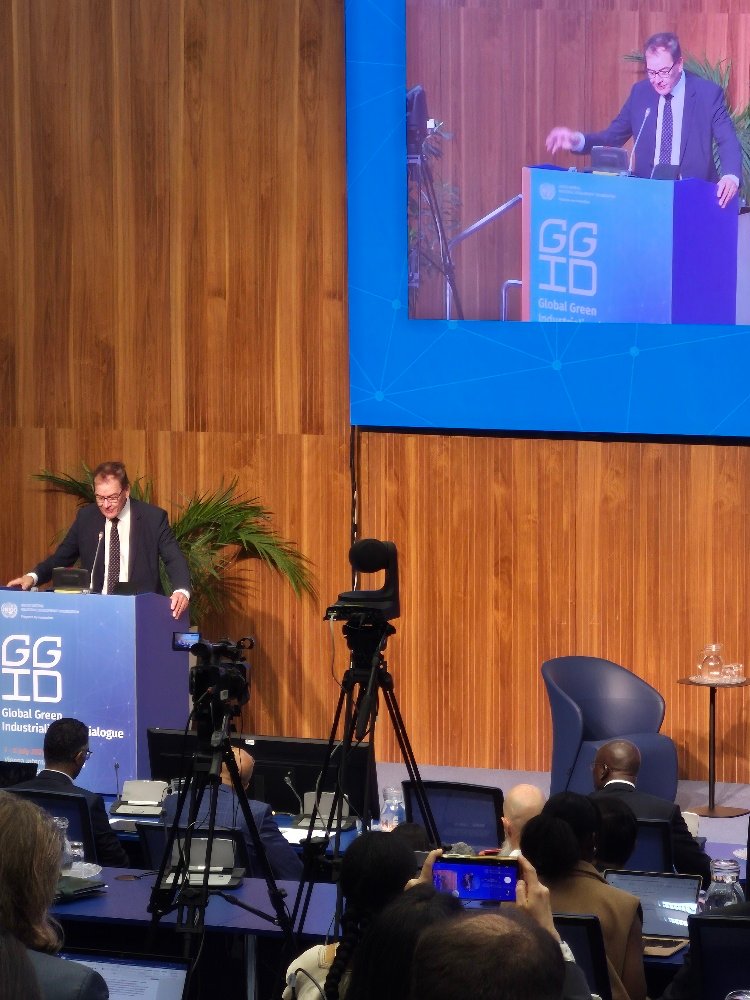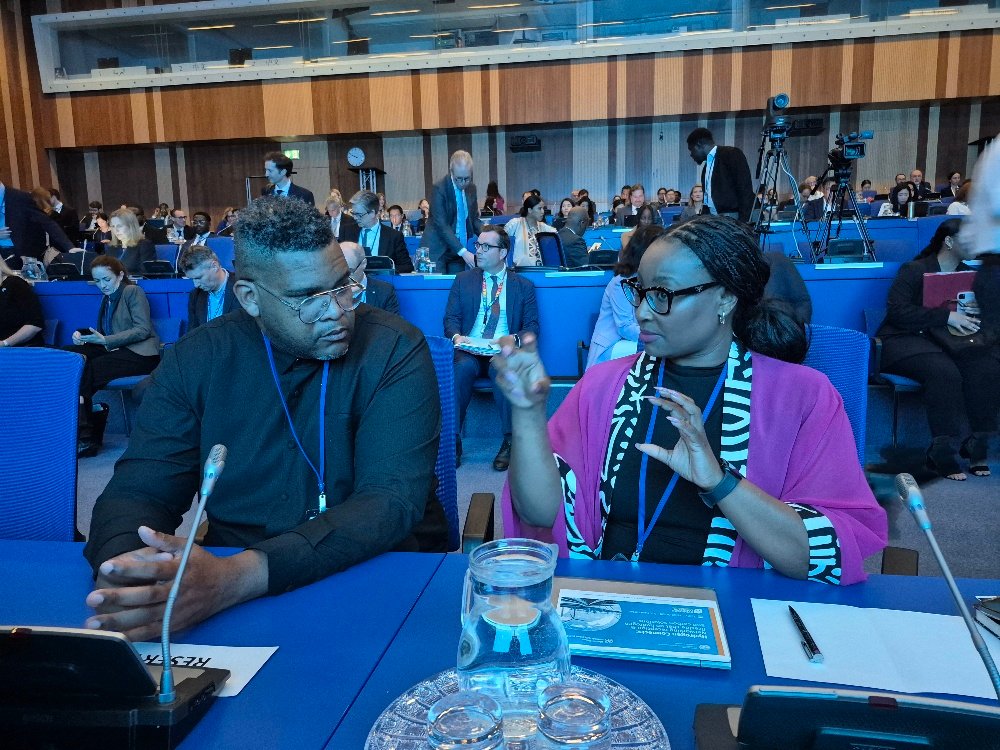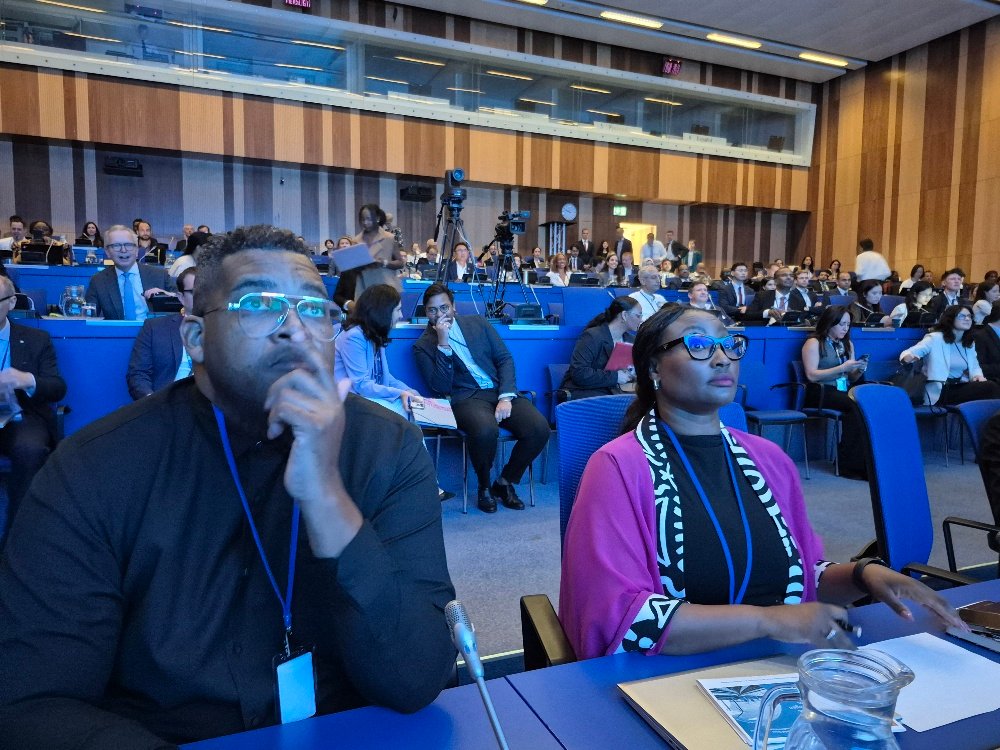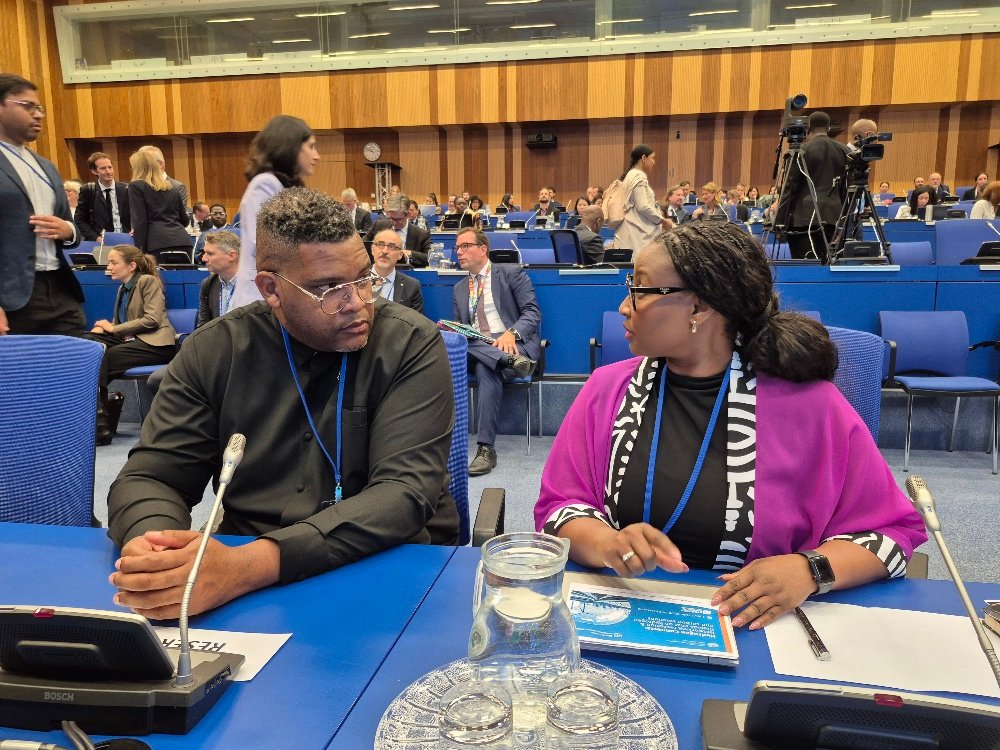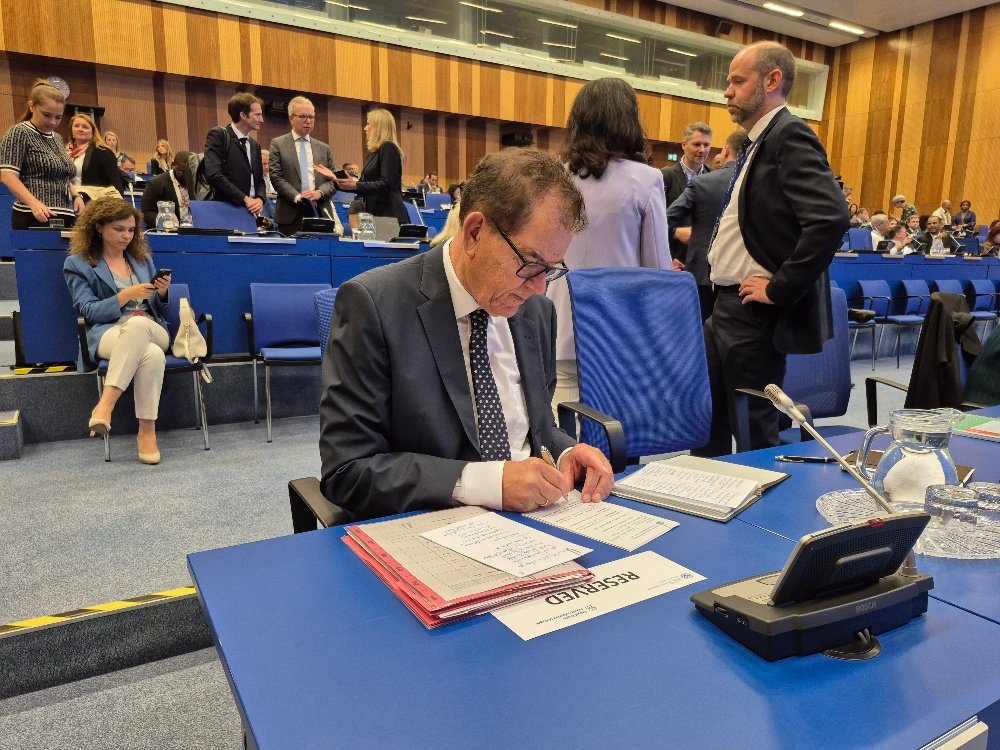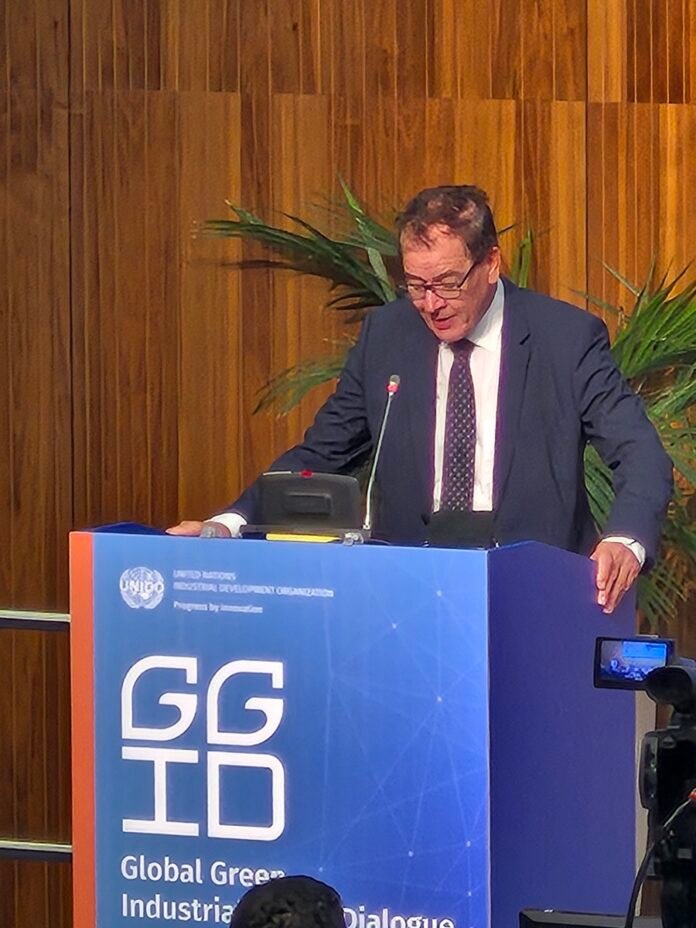Introduction to the Global Green Industrialization Dialogue
The Global Green Industrialization Dialogue (GGID) represents a pivotal initiative designed to foster sustainable growth through the integration of environmentally friendly industrial practices. The primary purpose of the GGID is to unite stakeholders from various sectors—government, industry, finance, academia, and civil society—to collaboratively work towards industrial strategies that support climate objectives while delivering equitable benefits to all. This dialogue places significant emphasis on the importance of green industrial policies, which are essential for addressing climate change and promoting sustainable development.
As the world grapples with the pressing challenges posed by climate change and environmental degradation, the initiatives under the GGID seek to transform traditional industrial practices into sustainable alternatives that align with global climate goals. The dialogue not only focuses on reducing carbon emissions but also emphasizes the adoption of innovative technologies and practices that enhance resource efficiency and minimize waste. Through this collective approach, diverse stakeholders can share insights, best practices, and strategies that align with the broader vision of sustainable economic growth.
The role of the United Nations Industrial Development Organization (UNIDO) in the GGID is central, as it facilitates the collaboration necessary to establish a framework wherein green industrialization can thrive. UNIDO’s expertise in promoting inclusive and sustainable industrial development ensures that the dialogue remains anchored in pragmatic solutions that pay heed to the specific needs of various economies, particularly developing nations. By fostering a cohesive approach, the GGID addresses the intersections of economic growth, social equity, and environmental stewardship, guiding industries toward a future that balances prosperity with responsible resource management.
In the current context of the energy transition, which aims to shift reliance from fossil fuels to renewable sources, the significance of the GGID cannot be overstated. It signifies a commitment to redefining industrial growth paradigms, thus fostering a sustainable economy capable of combatting climate change while ensuring that the benefits of such transformations are equitably shared among all segments of society.
Key Themes and Pillars of the Dialogue
The dialogue surrounding Global Green Industrialization (GGID) focuses on several critical themes, culminating in four main pillars: finance, technology and innovation, people, and resilient cleantech supply chains. These pillars encapsulate the essential elements required for fostering sustainable growth while addressing climate change. Each pillar plays a central role in the broader narrative of industrial transformation, which is crucial for achieving a sustainable future.
The first pillar, finance, emphasizes the necessity of unlocking climate finance. Access to financing is essential for facilitating investments in clean technologies and sustainable practices. This can be achieved through innovative financing mechanisms such as green bonds and blended finance models. Stakeholders must collaborate to create a conducive financial ecosystem that fosters investment in projects promoting sustainability, thus reducing carbon footprints and encouraging economic growth.
Next, technology and innovation emerge as the second pillar of the dialogue. Advancements in clean technology are vital for enhancing efficiency in industrial processes. The focus should be on research and development initiatives that prioritize eco-friendly practices. Transitioning to technologies that minimize environmental impact will require collaboration among governments, private sectors, and research institutions to drive innovation and spread best practices globally.
People, the third pillar, involves reskilling the workforce for a green economy. As industries evolve in light of sustainability goals, workers need retraining to adapt to new roles that emerge from green practices. It is crucial to design comprehensive education and training programs that foster skills relevant to clean technologies and sustainable practices, ensuring that the workforce remains competent and competitive.
Finally, resilient cleantech supply chains form the fourth pillar. Building sustainable supply chains is paramount in mitigating environmental risks while enhancing resilience against future challenges. Companies should focus on establishing partnerships that support sustainable sourcing, reduce waste, and streamline operations for efficiency. By adopting circular economy principles, businesses can create supply chains that are robust and adaptable to changing conditions.
By addressing each of these pillars through targeted strategies, the dialogue on GGID aims to facilitate a holistic approach towards industrial transformation, ultimately leading to a just and sustainable future.
Program Highlights and Speaker Insights
The dialogue on advancing global green industrialization is structured to foster insightful exchanges among diverse stakeholders. This multifaceted program is designed to catalyze discussions around sustainable growth and innovation, presenting a unique platform where government, private sector, and international organization leaders converge. The event will commence with opening remarks from key figures who will contextualize the importance of green industrialization in today’s socio-economic landscape. These initial insights will set the stage for more in-depth explorations throughout the program.
Highlighting the day’s agenda, plenary discussions will delve into critical topics such as the interconnection between environmental sustainability and industrial development. Noteworthy speakers will share their perspectives on emerging investment opportunities related to green technologies and practices. These insights will reflect real-world applications aimed at enhancing sustainability while addressing economic viability.
Additionally, roundtable sessions will encourage participant engagement, allowing attendees to debate and brainstorm solutions for common challenges in implementing green industrial practices. Among the focused sessions are ‘Financing the Future’ and ‘Fuelling the Green Industrial Revolution’. ‘Financing the Future’ will showcase innovative financing models and investment frameworks that empower industries to transition towards sustainable practices. Conversely, ‘Fuelling the Green Industrial Revolution’ will emphasize the vital role of collaboration among sectors to pioneer advancements in green industrialization.
Through shared experiences and strategies, speakers will provide actionable insights on how businesses and governments can foster a collaborative ecosystem to promote sustainable industrial growth. The collective expertise assembled at this dialogue is set to inspire and mobilize stakeholders towards achieving a greener, more sustainable future. This strategic alignment of ideas and initiatives underscores the commitment needed to advance global green industrialization while presenting a path for sustainable development.
Expected Outcomes and Future Commitments
The Global Green Industrial Dialogue (GGID) is anticipated to yield significant outcomes, particularly concerning the establishment of a comprehensive Global Green Industrialization Pact. This pact is poised to serve as a pivotal framework for international cooperation in climate action initiatives targeting the industrial sector. By setting clear priorities and actionable targets, the pact aims to facilitate a robust transition towards sustainable industrial practices worldwide.
One of the primary expected outcomes of the GGID is the identification of key action points that member countries are encouraged to adopt. These actions range from enhancing energy efficiency and promoting resource circularity to investing in cleaner technologies and sustainable supply chains. Collectively, these measures are designed to minimize industrial carbon footprints and promote greener production methods while fostering economic growth in line with global sustainability goals.
Moreover, the success of the Global Green Industrialization Pact hinges on forging strategic partnerships among various stakeholders. This includes governments, private sector players, non-governmental organizations, and academic institutions. Collaborations of this nature are essential for sharing best practices, pooling resources, and driving innovation in green technologies. The pact will also delineate the roles and responsibilities of different stakeholders, ensuring a cohesive approach to industrial transformation.
As the dialogue unfolds, its implications can be closely aligned with the upcoming Conference of the Parties 30 (COP30) to be held in Brazil. This pivotal event will serve as a critical platform for showcasing the advancements made through the GGID and for galvanizing further commitments from the global community. The alignment between the two initiatives is expected to create a synergistic effect, reinforcing global efforts toward sustainable industrialization and climate resilience.
In conclusion, the groundwork laid by the GGID promises to significantly elevate the discourse around global green industrialization, marking a collective step towards a more sustainable and equitable future in the industrial sector.
